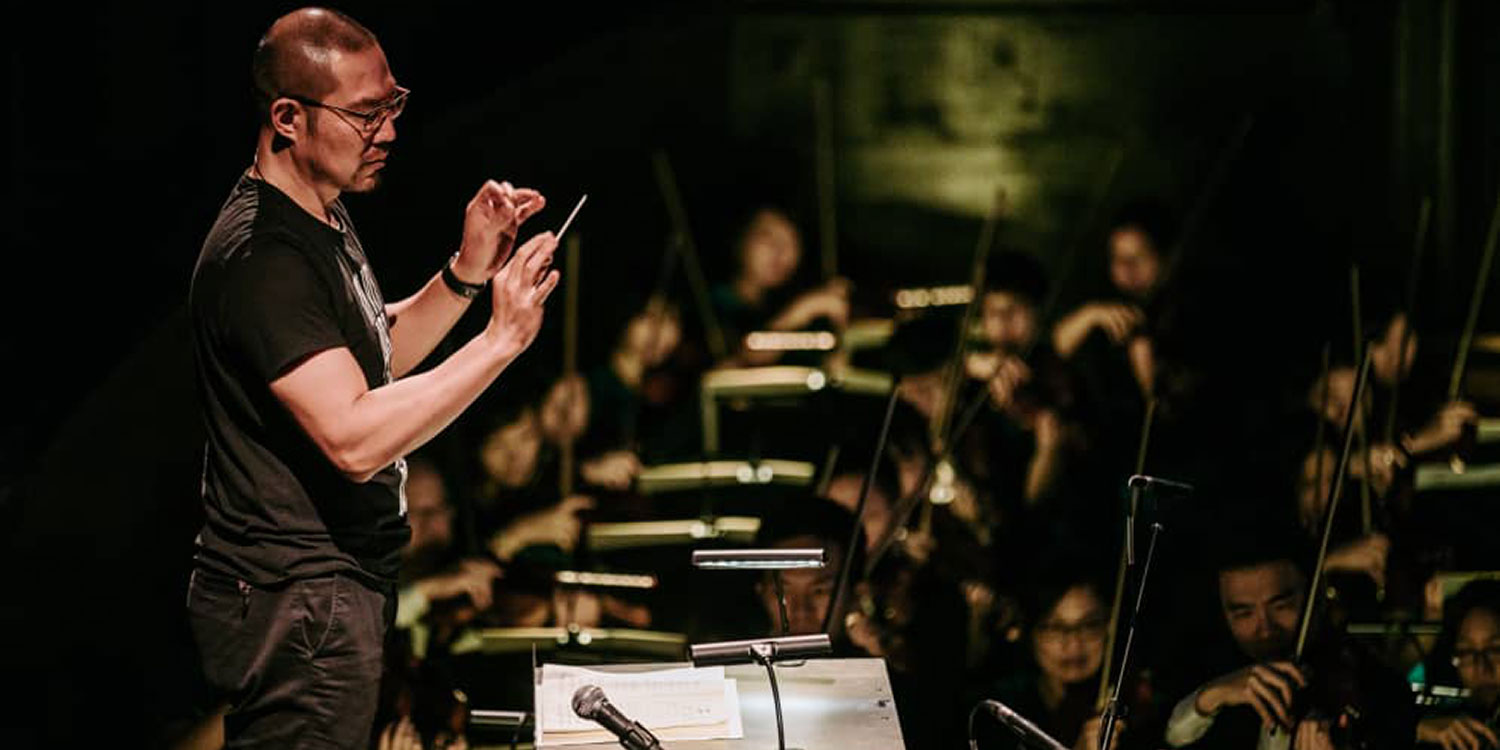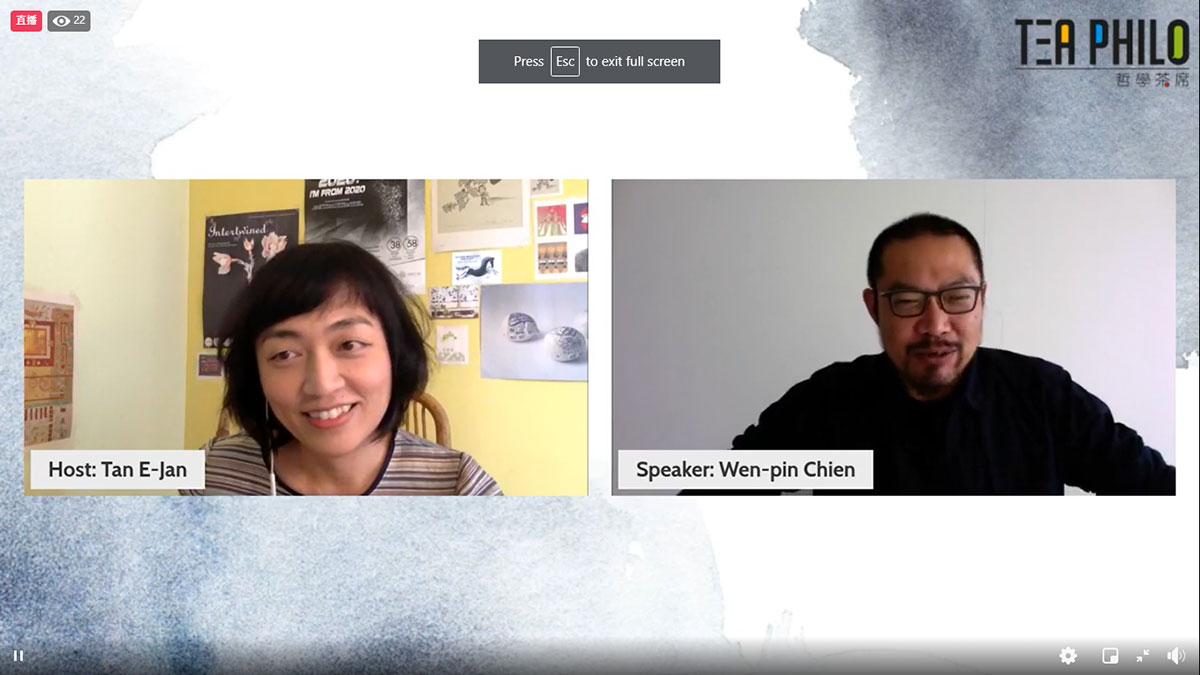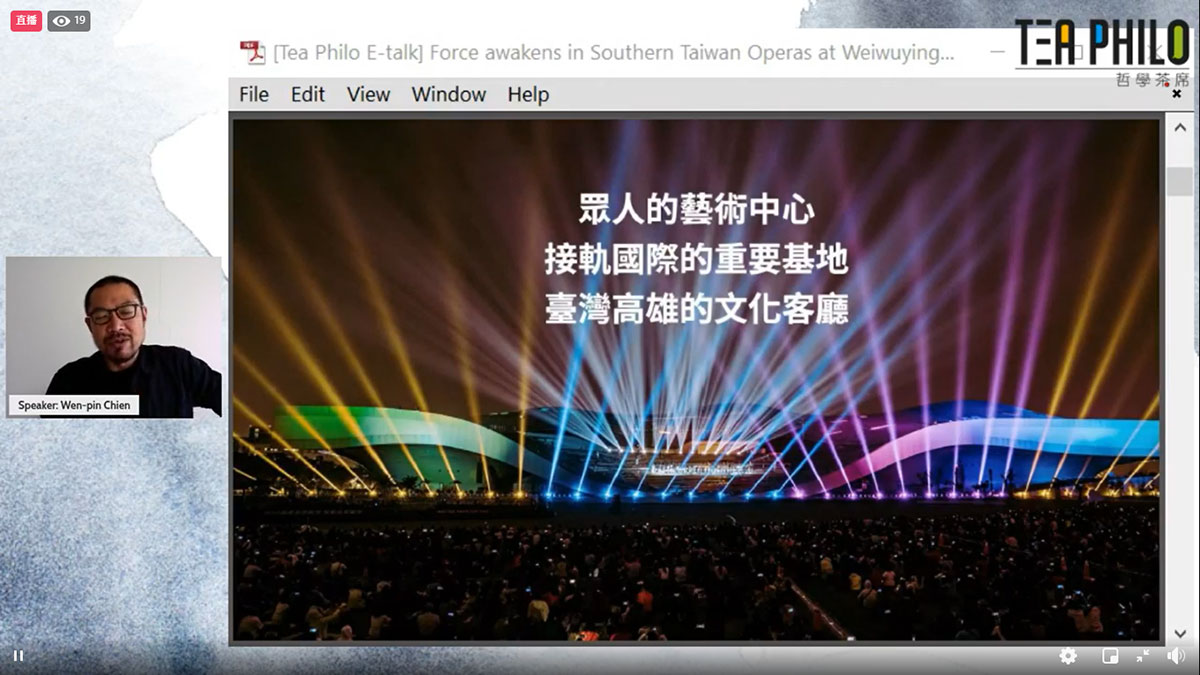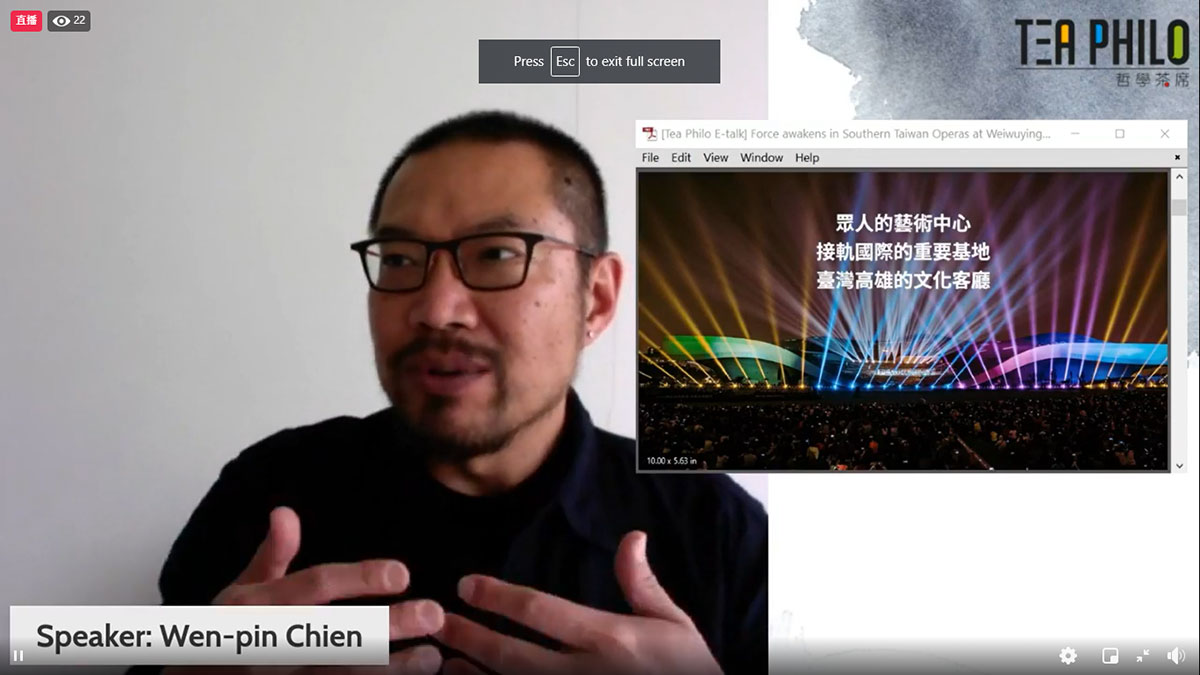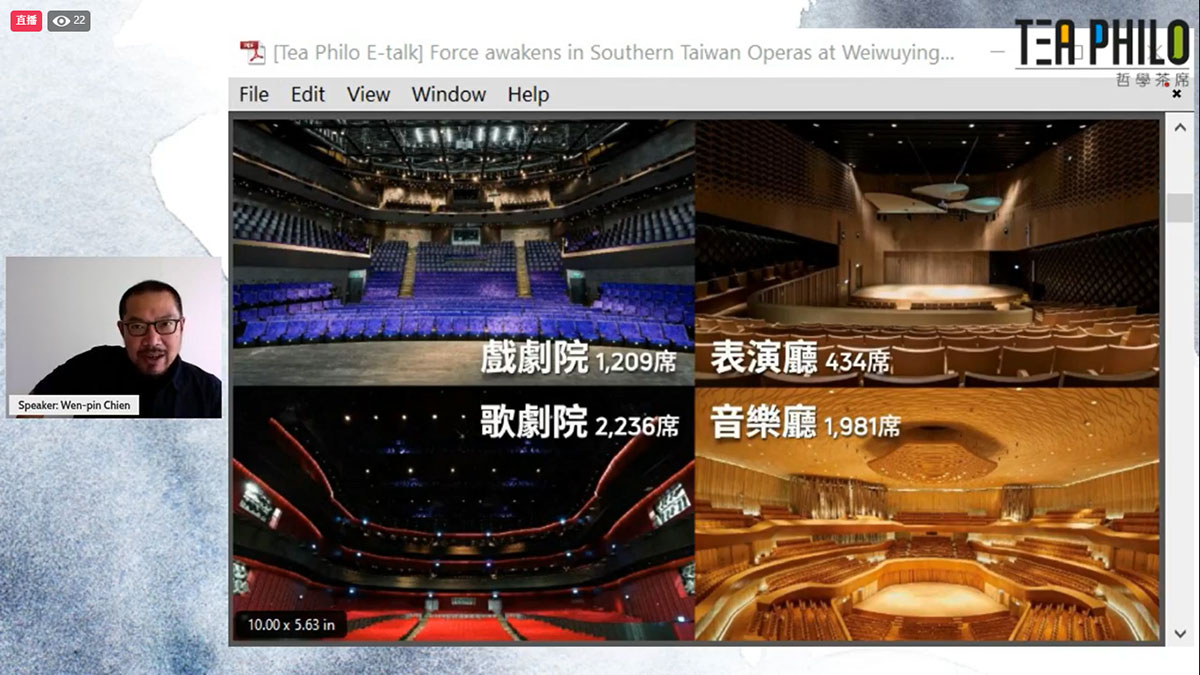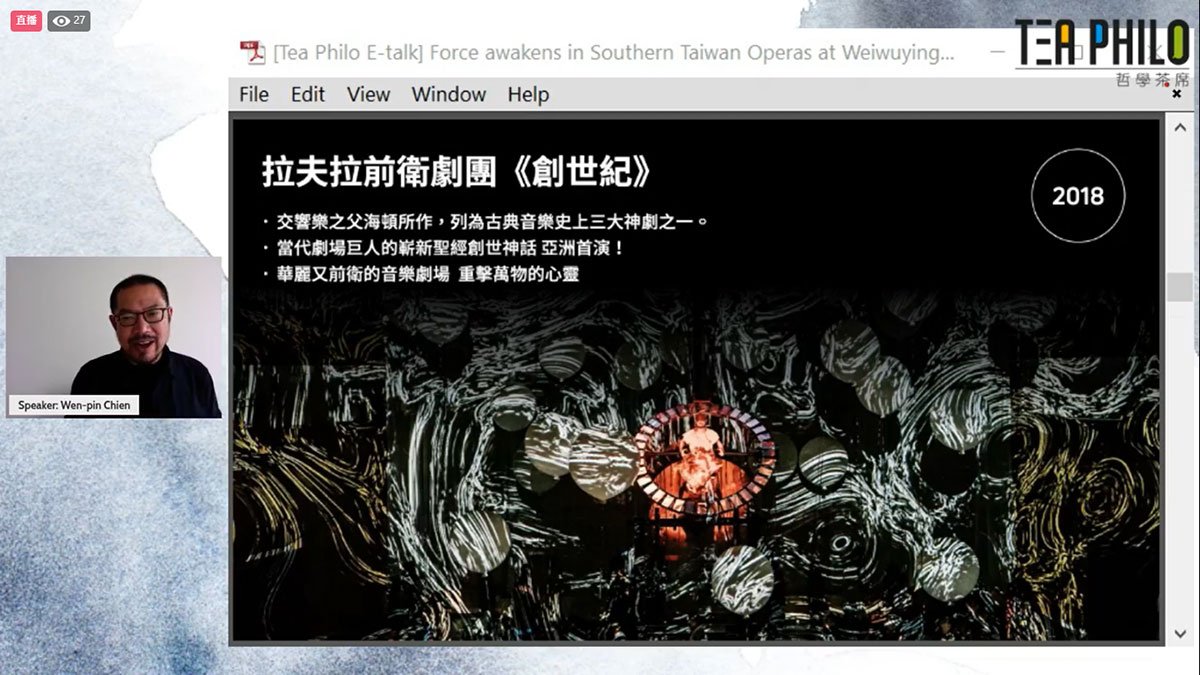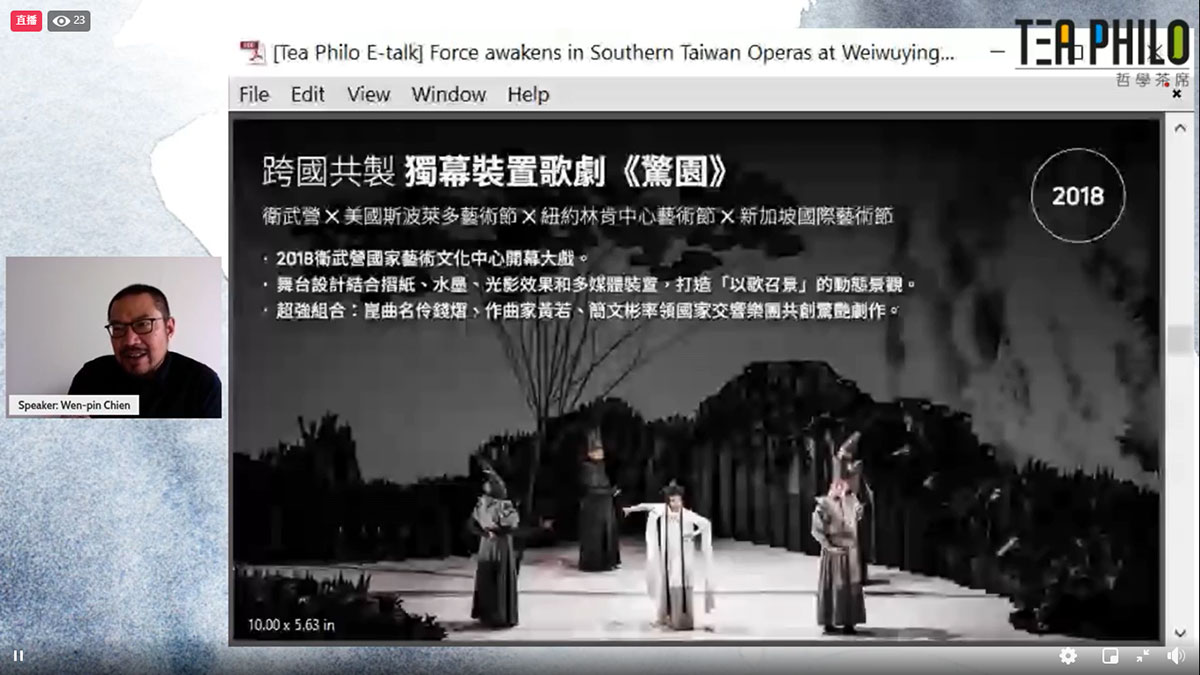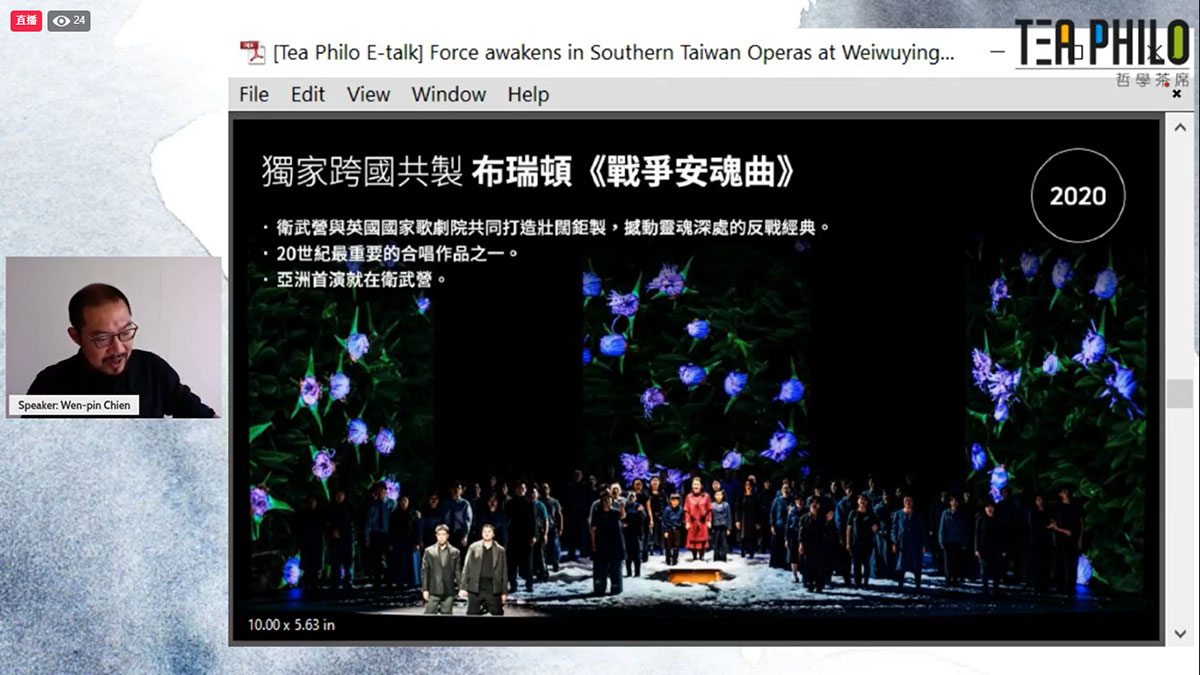Tea Philo 2021
Force Awakens in Southern Taiwan: Operas at Weiwuying
【Tea Philo】40
Guest Speaker:
Wen-Pin Chien
Speaker Bio:
Wen-Pin Chien, Executive and Artistic Director of the National Kaohsiung Center for the Arts (Weiwuying), was born in 1967, graduated from the National Taiwan Academy of Arts and awarded with Master degree at the National University for Music and Performing Arts Vienna. Chien joined the Deutsche Oper am Rhein (Dusseldorf/Duisburg, Germany) in 1996 and served as “Kapellmeister” for 22 years. 1998-2004 he was Resident Conductor of the Pacific Music Festival (Sapporo, Japan), 2001-2007 he was Music Director of National Symphony Orchestra (Taiwan Philharmonic), during his tenure the orchestra has achieved several milestones such as creating Subscription series, commissioning Taiwanese composers, introducing an opera series which coroneted with the first production of the complete „Ring des Nibelungen“ by Richard Wagner in Chinese speaking areas, upon orchestra’s 20th anniversary in 2006. 2014-2016 Chien was Artistic Advisor of the National Taiwan Symphony Orchestra. Chien was winner of the „National Award for Arts“ in 2014.
Theme of Discussion:
Force Awakens in Southern Taiwan: Operas at Weiwuying
Summary:
Organized by the Taipei Economic & Cultural Office in Malaysia, produced by INXO Arts & Culture (L) Foundation, Tea Philo is a series of sharing sessions revolving around the discussion of philosophies and humanities. First presented in April 2017 and active for 5 consecutive years and counting, Tea Philo has invited more than 40 luminaries from Taiwan to share experiences in their respective arts and industries and engage in meaningful exchanges of ideas with the local audiences.
The latest Tea Philo E-Talk involves the internationally renowned conductor Wen-Pin Chien, who is currently the General and Artistic Director of the National Kaohsiung Center for the Arts (Weiwuying). The E-Talk titled “Force awakens in Southern Taiwan: Operas at Weiwuying” was broadcast live on Tea Philo’s Facebook Page on 10th April 2021 and was hosted by Tan E-Jan, the Co-founder of Toccata Studio.
Chien started by introducing the uniqueness of the location and architecture of Weiwuying, a former military base turned arts and cultural centre with a massive surface area of 35 acres. Chien pointed out that according to the architect Francine Houben, Weiwuying’s design was inspired by local Banyan trees and their connection with the people, their daily activities, and the informality and casualness of the performing arts in Taiwan. The main purposes of Weiwuying, according to Chien, are to bring performers and arts closer to the audience, acting as a “cultural living room” instead of an institution, and to encourage international exchanges by becoming an essential platform that showcases Taiwanese artistic talents and encourages international collaborations and conversations.
Chien mentioned his background of having lived and worked abroad in different countries for a huge part of his life. After graduating from the National Taiwan Academy of Arts, he went to Vienna to pursue a Master’s degree at the University for Music and Performing Arts Vienna. He joined the Deutsche Oper am Rhein (Dusseldorf/Duisburg, Germany) in 1996 and served as Kapellmeister for 22 years. These experiences nurtured him as an artist and helped him reflect upon the arts scene of his own hometown. He asked himself, “What can we do to give Taiwanese artists more opportunities to be seen?”Chien pointed out that Weiwuying’s visions echoed his own which was why he gladly joined on board.
Opera is a huge focus for Weiwuying. Chien pointed out that besides his own fascination with opera, it is such an all-embracing art form that makes use of many art forms, for instance, music, staging, literature, and acting, that it can be called a Gesamtkunstwerk, “a total work of art”. He walked the audience through Weiwuying’s opera productions through the years, sharing valuable experience of producing, rehearsing, and performing in the midst of a pandemic.
Chien also talked about the efforts Weiwuying made to connect with the local community. The huge building could be intimidating to some at first, he said, “but we just have to keep inviting them to engage with the space and activities, because afterall it is theirs and for them.” Echoing Weiwuying’s slogan “Center for the Arts, Arts for the People”, he stated that “[the people] should own Weiwuying” by utilizing its free spaces and resources as much as possible since it is everyone’s right to enjoy arts.
Host:
Tan E Jan (Co-Founder of Toccata Studio)
Date:
10th April 2021 (SAT)
Time:
3pm-5pm


